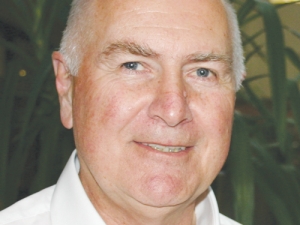Researchers behind a new tool say it gives Australian dairy farmers the potential to double the net income per cow that arises due to genetic improvement.
The new genetic selection tool, called Clarifide, takes genetic information from an animal’s DNA and converts it into a practical decision making tool for farmers.
Clarifide is the culmination of many years of research and development at the Australian Dairy Herd Improvement Scheme (ADHIS), the Victorian Department of Economic Development, Jobs, Transport and Resources (DEDJTR), and Zoetis. It has been successfully trialled in Victoria.
Clarifide offers reliable predictions of the potential of a herd with a simple tail hair test from the day of birth. A Clarifide genomic test delivers information on young heifers that is equivalent to recording their performance over seven lactations
Geneticist Jennie Pryce, of DEDJTR, said Clarifide gives farmers access to more reliable data for a number of traits not previously possible, with significant economic benefits. “Research suggests that farmers could double the value of their investment if they adopt a genomic selection tool for their breeding and selection decisions,” Pryce says.
The simple tail-hair DNA test will allow farmers to identify superior animals from as early as birth and identify whether or not these animals possess the potential to deliver on economically important traits including milk production, good fertility and overall durability.
“With an extra level of precision, farmers can now confidently select their best replacement animals, allocate higher value or sexed semen to genetically superior females, and increase the rate of genetic gain for economically important genetic traits, with the use of this new DNA technology,” Pryce says.
South West Gippsland farmers Peter and Jeanette Clark were able to realise the hidden genetic potential of their heifers after using Clarifide during trials in Victoria.
“We could never have imagined the extent of genetic potential that existed in our herd without a genetic test like it,” Jeanette Clark says. “We realised we were missing out on an opportunity to mate our heifers to top-rated semen after seeing their breeding values, so this tool has allowed us to make faster genetic improvements in our herd and know that we are breeding from the cow families that will make this advancement possible.”
Holstein Australia chief executive Graeme Gillan says the Australian dairy industry should take advantage of valuable breeding tools and grow their overall knowledge, acceptance and utilisation in herds.
“In Australia, genomic testing is an under-utilised technology, especially at female level, so it is exciting that there is going to be another channel that farmers will be able to incorporate into their business,” Gillan says.
“A farmer’s biggest asset is their herd, so if they don’t value genetics, they are missing out on an opportunity to know more about animals from an early age and make better breeding decisions. The more farmers can get out of their herd, the more opportunity for gain.
“In essence, farmers can put their money and efforts into the animals that will help to build a more profitable farm.”
Zoetis technical services manager Emily Piper says the new tool will allow farmers to avoid the risk of raising genetically inferior animals.
“We can now assist dairy producers with the difficult decisions on selection and management of heifers using a simple tail hair sample. That DNA sample can deliver a wealth of knowledge to producers about the animal’s future production, health and type potential,” Piper says.











